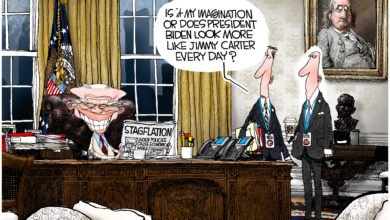The Cult of the National Health Service
A month ago The Guardian ran a story exposing the fact that British Prime Minister Rishi Sunak received private healthcare. Sunak faced online backlash for resorting to the market instead of relying on the UK’s National Health Service (NHS).
To an outsider, it may seem ridiculous that the British public is so vexed over such a personal decision. It’s his money after all. What next? Is there going to be an inquiry on whether he prefers McDonalds or KFC?
However, this story was used by the British left to score political points about out of touch Sunak is with the British public because of his wealth. The National Health Service has developed a cult following in British politics and has even been dubbed as “the closest thing to a state religion.” This is why it is seen as politically scandalous that the prime minister does not depend on the NHS.
For example, Dr. John Puntis, co-chair of the campaign group Keep Our NHS Public said on the topic: “It should be no surprise that Rishi Sunak has private medical care arrangements; this will be the norm for many of the rich and powerful … those making decisions about vital public services are often least likely to use them, which of course reinforces their ideological animosity.”
While it is true that out of touch politicians shouldn’t decide on healthcare, Dr. Puntis and other NHS fanatics prescribe the wrong antidote. The issue is not that Rishi Sunak has a choice over his healthcare. The problem is that he has the power to limit other people’s choices on their healthcare.
In the UK, the National Health Service has a near monopoly on healthcare and the vast majority of the country rely on it. The standard excuse—that the NHS is performing badly because it is underfunded—does not hold up. The NHS has received a large increase in funding every year: by 2023 Britons will be spending £175 billion on the NHS which will be a 50% real term spending increase since 2009.
However, despite this increase in funding, the NHS is still failing those who are forced by the state to depend on it. Over 7 million people are on NHS waiting lists and over 30,000 patients have to wait over 12 hours in emergency rooms each month. A recent story by The Daily Mail reported that a 93-year-old woman was left lying on the floor for 25 hours after suffering a hip fracture. When the NHS is failing people so drastically, is it any wonder that those who can afford to choose to receive healthcare elsewhere?
If those in the cult of the NHS really care about providing quality service for those who need it, they should advocate for more choice in healthcare rather than force people to pay for a service that does not serve them. Even for the most vulnerable, what’s the point of the NHS being free at the point of use when the endless waiting lists mean that no one can use it?
The shaming of Rishi Sunak for using private healthcare is a fine example of how socialists want to make the rich suffer even if that results in the poor suffering as well. To quote the British Prime Minister, Margaret Thatcher: “So long as the gap is smaller, they’d rather have the poor poorer.”
Content syndicated from Fee.org (FEE) under Creative Commons license.
Agree/Disagree with the author(s)? Let them know in the comments below and be heard by 10’s of thousands of CDN readers each day!




